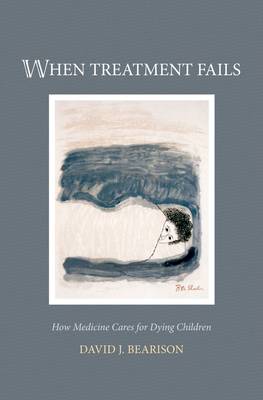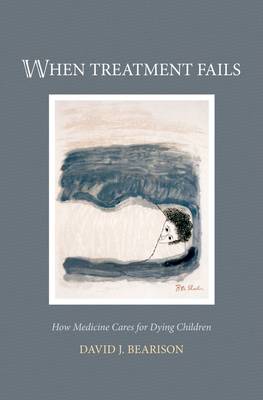
- Retrait en 2 heures
- Assortiment impressionnant
- Paiement sécurisé
- Toujours un magasin près de chez vous
- Retrait gratuit dans votre magasin Club
- 7.000.0000 titres dans notre catalogue
- Payer en toute sécurité
- Toujours un magasin près de chez vous
117,95 €
+ 235 points
Description
Medical care of the terminally ill is one of the most emotionally fraught and controversial issues before the public today. As medicine advances and technologies develop, end-of-life care becomes more individualized and uncertain, guided less by science and more by values and beliefs. The crux of the controversy is when to withhold or withdraw curative treatments--when is enough, enough?
Political debates rage about when treatment is no longer effective; difficult cases are contested in courts; and the media devour the most sensational aspects of end-of-life care. In all this excitement and controversy, what is sadly overlooked is the extreme pressure that care of the terminally ill puts on medical staff as they deal with patients and their families and make life-or-death decisions. That pressure--the psychological strain and continuing uncertainties--is magnified when the patients are children.
David Bearison looks at this controversial issue from the perspective of the medical staff caring for dying children. Not just doctors, but nurses and counselors as well. By capturing their stories--as no other book has, Bearison is able to move beyond broad, abstract ideas about end-of-life care to convey the situated contexts of such care, including the complications, disagreements, frustrations, confusions, and unexpected setbacks.
In addition to a discussion of questions surrounding whether to withhold or withdraw curative treatments, When Treatment Fails explores the crucial concerns of those medical practitioners who care for dying children: education and training, relation with one another, communicating with patients and families, and finally, coping and moving on. Ultimately, the threads connecting these themes are the great costs and rewards of this difficult work, and the lessons that can be drawn from the nitty-gritty experiences of medical practitioners who struggle to find the balance between trying to defeat death and trying to provide comfort.
Political debates rage about when treatment is no longer effective; difficult cases are contested in courts; and the media devour the most sensational aspects of end-of-life care. In all this excitement and controversy, what is sadly overlooked is the extreme pressure that care of the terminally ill puts on medical staff as they deal with patients and their families and make life-or-death decisions. That pressure--the psychological strain and continuing uncertainties--is magnified when the patients are children.
David Bearison looks at this controversial issue from the perspective of the medical staff caring for dying children. Not just doctors, but nurses and counselors as well. By capturing their stories--as no other book has, Bearison is able to move beyond broad, abstract ideas about end-of-life care to convey the situated contexts of such care, including the complications, disagreements, frustrations, confusions, and unexpected setbacks.
In addition to a discussion of questions surrounding whether to withhold or withdraw curative treatments, When Treatment Fails explores the crucial concerns of those medical practitioners who care for dying children: education and training, relation with one another, communicating with patients and families, and finally, coping and moving on. Ultimately, the threads connecting these themes are the great costs and rewards of this difficult work, and the lessons that can be drawn from the nitty-gritty experiences of medical practitioners who struggle to find the balance between trying to defeat death and trying to provide comfort.
Spécifications
Parties prenantes
- Auteur(s) :
- Editeur:
Contenu
- Nombre de pages :
- 312
- Langue:
- Anglais
Caractéristiques
- EAN:
- 9780195156126
- Date de parution :
- 09-02-06
- Format:
- Livre relié
- Format numérique:
- Genaaid
- Dimensions :
- 165 mm x 236 mm
- Poids :
- 571 g

Seulement chez Librairie Club
+ 235 points sur votre carte client de Librairie Club
Les avis
Nous publions uniquement les avis qui respectent les conditions requises. Consultez nos conditions pour les avis.





